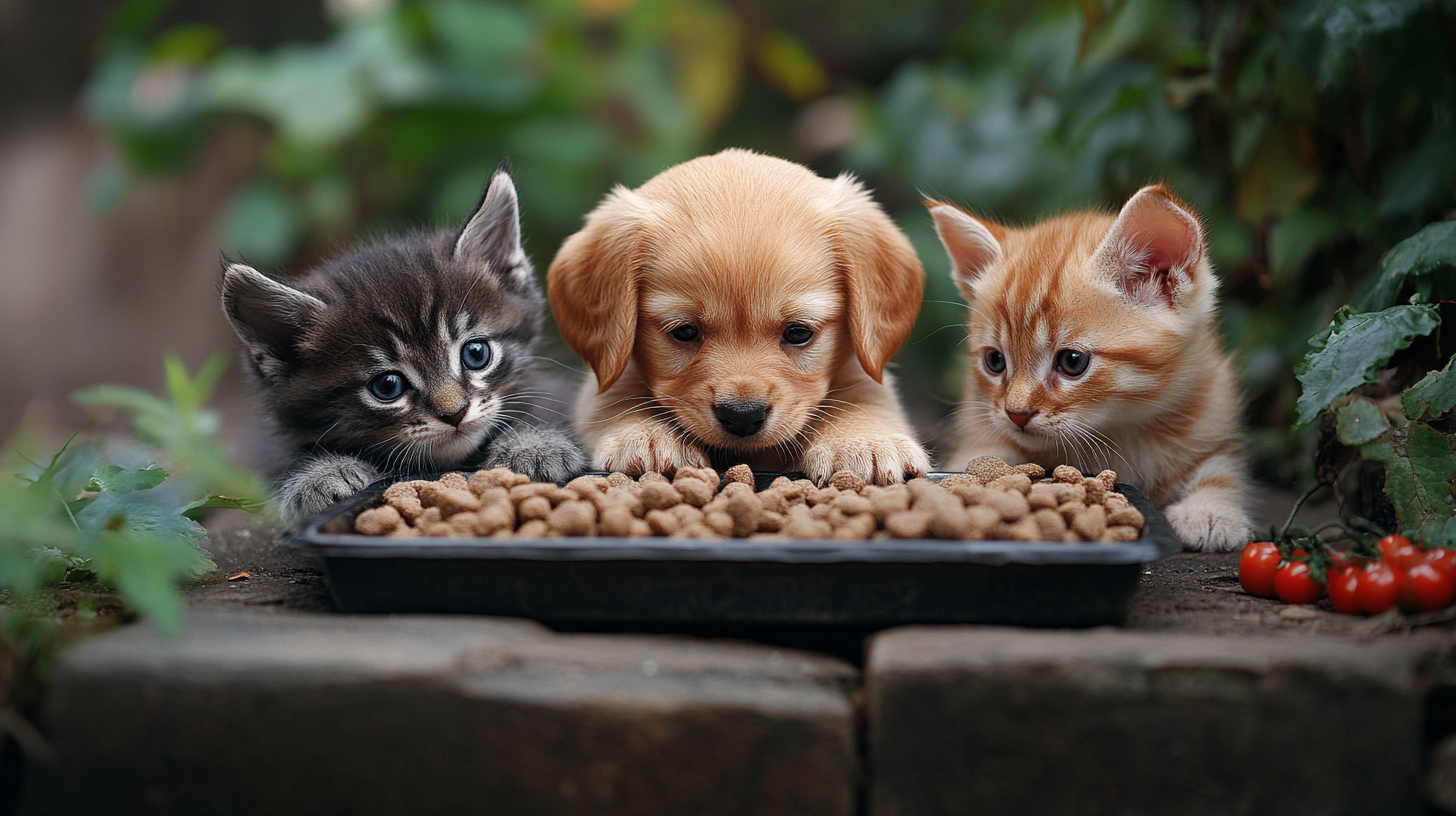Feeding Guidelines for Puppies and Kittens: A Comprehensive Guide
3 min read
As a pet owner, one of your top priorities is to provide the best care possible for your furry companions. Proper nutrition is critical during the early stages of development for puppies and kittens, as it lays the foundation for their overall health and well-being. Here's a detailed guide that will help you understand the feeding guidelines to follow for these adorable bundles of joy.
1. Understanding Nutritional Needs Puppies and kittens have unique nutritional requirements compared to adult dogs and cats. Their growth rate is rapid, and they need a diet rich in proteins, fats, vitamins, and minerals to support healthy development. Look for high-quality, breed-specific puppy or kitten food that is formulated to meet their needs.
2. Frequency of Feeding
- Puppies (8 weeks to 6 months): It's essential to feed puppies at least three to four meals a day to sustain their energy levels and support growth.
- Kittens (8 weeks to 6 months): Like puppies, kittens should also be fed three to four times a day. Splitting their daily intake into smaller meals helps with digestion and provides consistent energy throughout the day.
3. Transitioning to Solid Food Typically, puppies and kittens start weaning off their mother's milk around 4 to 6 weeks old, transitioning to solid food. Initially, introduce a high-quality wet or dry puppy/kitten food specifically designed for their age. Gradually incorporate it into their diet, mixing it with water or their formula to make the transition smoother.
4. Portion Sizes and Monitoring Growth Each brand of puppy or kitten food has specific feeding recommendations based on weight and age. It's crucial to follow these guidelines while also monitoring your pet's growth and body condition. Adjust portion sizes appropriately to ensure your pet is neither underweight nor overweight.
5. Nutritional Additives While puppies and kittens generally do not require additional supplements if they are fed a high-quality commercial diet, some may benefit from specific additives like omega fatty acids or probiotics. Always consult with your veterinarian before adding anything to their diet.
6. Special Considerations for Different Breeds Some larger dog breeds and certain cat breeds have unique dietary requirements due to differing growth patterns. For example, large breed puppies may benefit from lower calcium levels to help prevent skeletal issues. Always consider breed-specific needs when choosing a pet food.
7. Hydration is Key Always ensure a fresh supply of clean water is available for your puppies and kittens. Proper hydration is just as important as their diet and encourages healthy digestion and nutrient absorption.
8. Consult with Your Veterinarian Regular veterinary check-ups will help you monitor your pet’s growth and overall health. They can provide personalized advice based on your pet’s unique nutritional needs, any health issues, and how to transition from puppy/kitten food to adult formulas when the time comes.
In conclusion, feeding your puppies and kittens the right way is one of the most important responsibilities you have as a pet owner. Ensuring they receive balanced nutrition in their formative months will contribute significantly to their growth, health, and happiness. By following these guidelines and consulting with your veterinarian, you can help your furry friends grow into strong and healthy adults.


